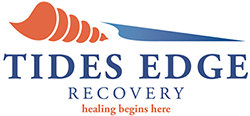Methamphetamine, also known as meth or crystal meth, is a dangerous and addictive drug. It is a potent stimulant that creates a feeling of euphoria and an excess of energy in the individual. However, because of its potency, it has an outsized effect on brain chemistry. This can quickly lead to dependency or addiction.
Like any addiction, healing from meth abuse usually begins with detox. This is the first step in healing the damage meth causes to the body and developing a treatment plan. At Tides Edge Detox, our meth detox program can help you or someone you care about to begin the recovery process. Finding the right meth detox programs to address you or your loved one’s needs is vital, and our team understands that.
What Is Meth?
People need to know more about meth. Arming oneself with knowledge is the best protection one can have against any illicit drug. Knowing how a drug, whether illicit or legally prescribed, affects one’s system gives individuals a better chance of understanding when they are suffering from ill effects and need assistance.
First, meth is a stimulant that speeds up the brain and other bodily functions. It comes in a few forms, but the most common include crystals, powder, and pills. In its crystal form, people typically refer to the drug-like crystal meth. This drug is popular with people of all ages. One reason is that it’s cheap. As a stimulant, people take meth before they go to parties or dance clubs. The drug makes them feel fun and outgoing.
Of course, people don’t always refer to this drug like meth or crystal meth. It has numerous street names, including speed, chalk, glass, Christmas tree, and ice. There are also a lot of ways to take it. Some of the most common include smoking, injecting, and swallowing it.
Bumping is the process of snorting or swallowing meth. People inject the drug because it gives them the strongest and most intense high. They refer to the intense high as a flash or rush because it doesn’t last long.
Short-Term Effects of Meth
In the short term, meth provides a lot of energy and a sense of well-being. In general, people end up pushing their bodies further and faster. However, once the rush ends, they experience a physical and mental crash. Meth also decreases people’s feelings of hunger, which leads to weight loss. It makes it hard for them to sleep too, which gives way to mild forms of insomnia.
Meth leads to addiction fairly quickly. People who suffer from meth addiction seek the drug regularly. When they don’t have the drug, they get irritable and super aggressive. However, some people remain aggressive and irritable even under the influence.
Long-Term Effects of Meth
The long-term effects of meth cause serious harm to the body and mind. People who continue to abuse can suffer from paranoia, hallucinations, anxiety, and confusion regularly.
The physical problems that meth causes are even worse. It damages blood vessels and the heart. Eventually, abusing meth leads to an irregular heartbeat, stroke, or cardiovascular damage. It’s also common for people to suffer lung, kidney, and liver damage.
In general, however, the effects of meth can lead to death. Most people eventually die from an overdose. The more that they take the drug, the more that their tolerance grows. With a high tolerance, they have to keep taking higher doses to feel the effects of the drug.
Overdosing on meth typically causes coma, seizures, or even death. Of course, it also leads people to make poor life choices. They find themselves doing things that they normally wouldn’t do to score more drugs.
Whether someone is struggling with the short-term or long-term effects of meth, there are treatment options available. At Tides Edge Detox, our detox programs offer several forms of therapy, such as:
Cognitive-Behavioral Therapy (CBT)
CBT is a form of psychotherapy that helps people learn to recognize and change negative thinking patterns and behaviors. It combines cognitive therapy techniques with behavior modification techniques to help individuals break free from the cycle of addiction.
Group Therapy
Group therapy is a form of behavioral therapy that involves a group of people with similar issues coming together and providing support to each other. This type of therapy focuses on addressing the root causes of addiction, including managing triggers and developing healthy coping mechanisms. In addition, it provides accountability, motivation and understanding from peers who have been in the same situation.
Individual Therapy
Individual therapy is a type of psychotherapy that occurs between the individual and their therapist. It typically focuses on understanding the underlying emotional or psychological issues related to addiction and helping individuals develop healthier, more sustainable coping strategies.
Yoga Therapy
Yoga therapy is a holistic approach to addiction treatment that uses yoga and other mind-body techniques to help individuals achieve physical, mental, and spiritual healing. It focuses on helping people gain control over their bodies, minds and emotions by using breathing exercises, postures, meditation and relaxation techniques. Yoga therapy can also help reduce stress levels, improve self-awareness and provide individuals with a healthier way to cope with their addiction.
Discover How Tides Edge Detox Can Help with Meth Addiction
Early intervention is the best way to help people stop using meth. Tides Edge Detox Center provides programs and services to help individuals overcome meth abuse. Our addiction treatment services cover meth detox but also other substances like:
- Alcohol detox
- Ecstasy Detox
- Bath salts detox
- Benzo detox
- Cocaine detox
- Fentanyl detox
- Heroin detox
- Opiate detox
- Opioid detox
- Prescription drug detox
Contact Tides Edge Detox Center today by calling 866.723.3127. Our team is ready to help.









